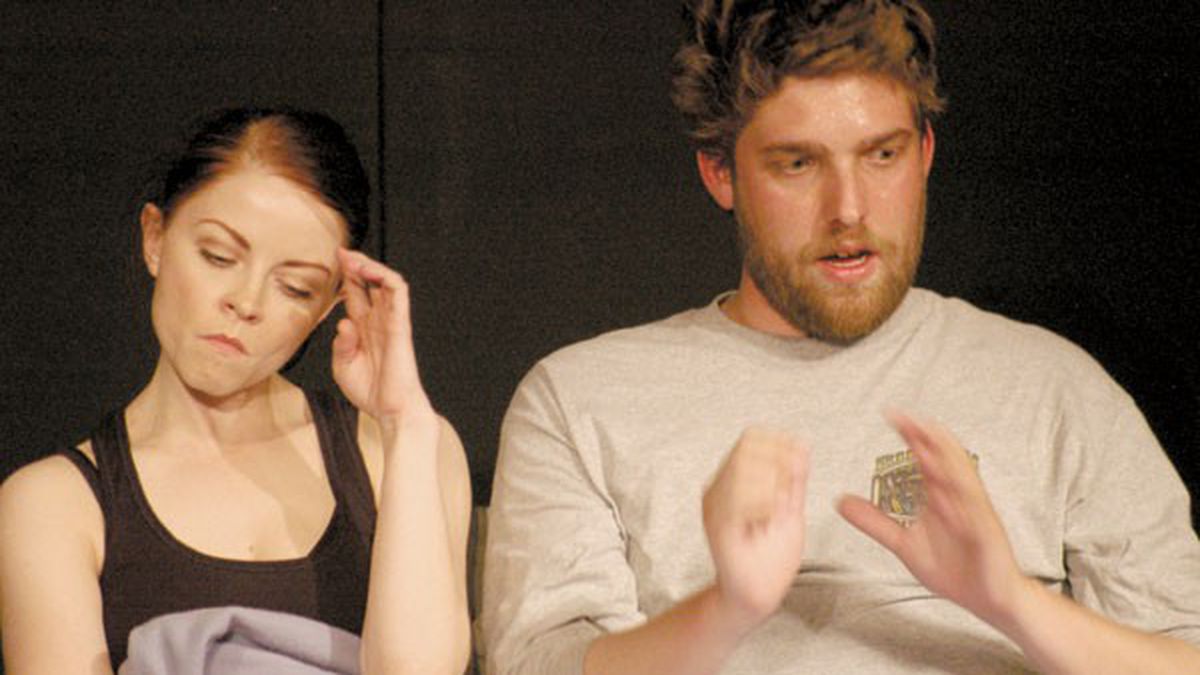Actors Rob Ready and Dan Williams have a knack for self-deprecating
humor. They describe their two-year-old company, PianoFight
Productions, as the result of two guys getting bored with
“whoring/boozing,” and finding a more inventive way to squander their
time. In reality, though, PianoFight is a micro-budget operation with a
ton of potential. Give these guys a few years and they’ll be battling
Judd Apatow for pop-culture supremacy. They fit the part, after all:
Williams and Ready look like dudes you knew in high school. They’re
intellectuals who traffic in poop jokes. They’d find a way to blend
into any subculture. All they lack is financial wherewithal.
PianoFight lives within its means, occupying a small black box in
San Francisco’s SoMa District, called Studio 250. The company’s dossier
includes several short theater works, a sketch comedy series called
“The S.H.I.T. Show,” several web videos, and even a short film.
PianoFight also oversees a three-month playwriting competition that
uses the audience as its jury. Called Shortlived, it’s divided
into two-week rounds with eight short plays per round. Audience members
score each play on a scale of one to ten, and at the end of the round
the four lowest-scoring plays get dropped and replaced by four new
plays. Whoever wins at the end gets to write a full-length play that
PianoFight will produce for one month.
Ready, Williams, and fellow PianoFighter Eric Reid came up with the
idea for Shortlived on a lark, because they needed something to
fill three months at their tiny performance space. It was a knock-out
success: Last year’s winner Daniel Heath penned the
choose-your-own-adventure play Forking!, which traveled to Los
Angeles after a solid San Francisco run. PianoFight received dozens
more entries for this year’s Shortlived 2.0, which meant a
broader range of material to choose from. Most of it falls within the
Gen-Y comedy vein, with storylines about hook-ups, weed,
friends-with-benefits, social networking sites, farting at inopportune
moments, or having to live with your momma. The plays are quick-witted,
slangy, and full of contemporary references. The not-so-great ones
devolve into puerile humor. The better ones build up to a punch line.
The best ones verge on brilliance.
What most distinguished the plays in last week’s Round 4 was their
awareness of modern technology, both as a theme to explore and a device
to propel the stories forward. Jaime King’s “Club Face” showed what
happens when you take the superficialities of Facebook and transfer
them to a club setting. In contrast to Club Space down the block (“all
robots and sex offenders pretending to be little girls”) and that new
joint, Club Twitter (where people just yell at each other), Club Face
is perfectly suited to the hook-up generation. You arrive with a
“single/dating” placard hanging around your neck, submit five likes and
dislikes at the door, and get “poked” by an old girlfriend —
right before your mom and all your co-workers walk in. The idea isn’t
completely novel — BBC’s The Wall did a similar Facebook
skit last year — but the jokes haven’t gone stale, yet.
Similarly, “Domestic Surveillance” — a new submission by last
year’s champion Daniel Heath — took an old sitcom premise and
gave it a modern spin. In Heath’s version, mom worked for the National
Security Agency, which gave her all the tools she needed to spy on her
son and micro-manage his life. The setup was a perfect way to connect
two universally appealing themes — anxiety about government
wiretaps and contempt for an oppressive parent. And this mother was a
piece of work, too: She paralyzed a city mass-transit system just to
needle her son about a failed relationship. Abuse of power would be an
understatement.
Script-wise, “Domestic Surveillance” was one of the three top
contenders in Round 4, about on par with Steve Koppman’s “A Modest
Proposal” (about the argument that ensues when a guy tries to “open up”
his long-term relationship). Richard Medugno’s “Cyrano Truncated” was
arguably the best play overall. “Cyrano” stood out in particular
because it was the only play that didn’t use sex and relationships as
part of the storyline. Rather, it hinged on a swashbuckling match
between Cyrano de Bergerac and D’Artangnan, which resulted in Cyrano’s
nose getting hacked. The moral had something to do with
rhinoplasty.
More impressive than the plays proper were the actors and directors
of PianoFight, who are burdened with learning — and interpreting
— four new plays every two weeks. The cast members vary in
quality and are generally better at physical humor than at
flesh-and-blood characters (you can tell they’ve all typecast
themselves as a way of streamlining the process). Still, four plays in
two weeks is no small feat. That alone tells you something about the
amount of talent that’s going into Shortlived 2.0. It’s well
worth checking out, even if you have trepidation about watching new,
untested material. Remember, you get to cast judgment at the end.












